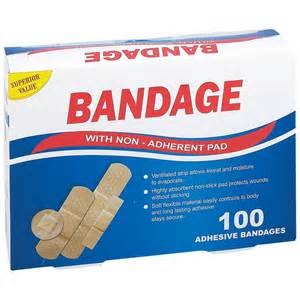Who has the Band-Aids?
by Rabbi Mordechai Rhine
Our father Yakov shared his final words with his children. As he addressed the first three of the brothers he was full of rebuke. He told Reuvein, Shimon, and Levi, of significant  events where they had acted wrongly. When it was time for Yehudah, the fourth brother, to be addressed, Yehudah feared that, he too, would be rebuked. After all, he had an incident with Tamar. But instead of rebuking him, Yakov blesses him and declares him fitting to be the leader.
events where they had acted wrongly. When it was time for Yehudah, the fourth brother, to be addressed, Yehudah feared that, he too, would be rebuked. After all, he had an incident with Tamar. But instead of rebuking him, Yakov blesses him and declares him fitting to be the leader.
If Yehudah also did something significantly wrong, why is it that Yakov singles him out for enormous blessing and praise?
The medrash explains that the incident of Tamar is itself the way through which Yehudah earned his father’s respect. In the incident of Tamar, Yehudah might have been tempted to allow Tamar be punished for her seemingly immoral activity. Instead he admitted that he was the father of her children, even though this was embarrassing for him. Said Yakov: You raised yourself above the test. By admitting that it was from you, you saved yourself, and became a role model for others to acknowledge wrongdoing.
Even though Yehudah had done wrong, his admission and teshuvah was so dramatic that the incident was a catalyst for Yakov’s praise.
One of Yehudah’s most famous descendents is King David. He too, was blessed with the ability to acknowledge wrongdoing, and to say “I’m sorry” when he had done wrong. When the prophet points out his wrongdoing, he immediately responds with the statement, “I have sinned.” The commentaries note that this is unlike many others who declare excuses instead of apologies. The ability to acknowledge wrongdoing is a life skill to be treasured.
I am reminded of the story of an alcoholic who spent months in rehab until he was sent home. He promised never to drink again. Yet, when the family went out one evening he figured he could sneak in a good drink and no one would ever know. He drank and drank, and as he staggered his way through the kitchen he tripped on a chair and fell to the floor, and in the process knocked a glass off the kitchen table. The glass shattered and shards of glass made their way into his face. He did his best to clean the floor and then made his way to the bathroom to bandage up his face. When he felt confident that no trace of his drunkenness was left, he made his way to bed for a good night’s sleep.
In the morning his wife confronted him about the episode. “You promised not to drink!” she said. “Oh… how do you know I drank?” he responded.
“What do you mean, how do I know…?” she asked, sarcasm edging into her voice.
“Well, just because a glass broke downstairs isn’t a reason to accuse me of drinking.”
“Yes,” she said, “But when you tried to bandage up your face, you put the Band-Aids on the mirror instead of on yourself.”
Our sages tell us that it is impossible to do good in this world without making mistakes along the way. If we are to take initiative and be active people then we will at times err. Lucky is the person who knows to place the Band-Aids on himself when necessary. Lucky is the person who knows how to say, “I’m sorry.”
© 2015 by TEACH613™


0 Comments